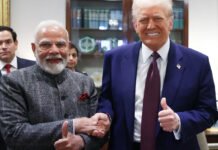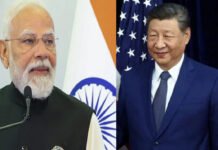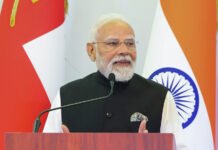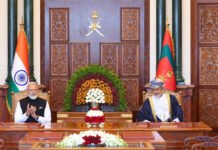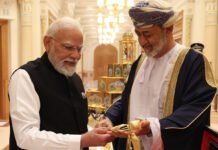Union Commerce Minister Piyush Goyal confirmed that both nations are making “steady progress” in ongoing trade negotiations. Speaking to the media, Goyal emphasized that India and the United States remain actively engaged in efforts aimed at achieving a fair and balanced trade agreement that serves the interests of both countries.
The discussions between India and the US have been closely watched by businesses, investors, and policymakers alike, as both countries seek to strengthen bilateral trade while addressing long-standing concerns on tariffs, market access, and regulatory standards. According to Goyal, the ongoing talks are constructive, and both sides are committed to resolving differences through dialogue and diplomacy.
“We are working diligently with our US counterparts to ensure that trade between our nations is equitable and mutually beneficial. Progress is steady, and both countries remain committed to finalizing a fair deal,” said Piyush Goyal.
Key Areas of Focus in Negotiations
The India-US trade discussions cover a wide range of areas, including:
Tariff Reductions – Both nations are exploring ways to lower trade barriers on key products, including agricultural goods, pharmaceuticals, and industrial equipment.
Market Access – Indian exporters are seeking better access to the US market, while the US is keen to open up opportunities for technology and service companies in India.
Intellectual Property (IP) Protections – Strengthening IP frameworks is a crucial point, particularly for technology, pharma, and innovation-driven sectors.
Trade Facilitation and Regulatory Standards – Both countries are negotiating to ensure smoother compliance processes and streamlined customs procedures.
Analysts suggest that progress in these areas could significantly boost trade volumes and support economic growth in both nations. India’s exports to the US currently cover sectors like textiles, engineering goods, pharmaceuticals, and IT services, while imports from the US include machinery, aerospace products, and technology components.
Implications for Indian Businesses
For Indian exporters, a successful trade deal could mean easier access to the world’s largest consumer market, potentially increasing revenue and opening doors for small and medium enterprises. Conversely, US companies are looking for a stable and predictable environment to invest and expand operations in India.
“A fair trade deal is not just about numbers; it’s about creating a long-term partnership that benefits businesses and consumers in both countries,” noted an industry insider familiar with the negotiations.
Global Perspective
The India-US trade dialogue is being closely monitored by international markets. Economists argue that a strong bilateral trade framework could serve as a model for other emerging economies seeking mutually beneficial agreements with global powers. Additionally, progress in trade talks may positively influence foreign direct investment (FDI) flows, technological collaborations, and job creation in both countries.
Next Steps
While steady progress has been reported, Goyal stressed that continued engagement and negotiations are key. Trade experts suggest that the coming months will be crucial as both nations work on finalizing agreements, resolving pending issues, and ensuring compliance with domestic policies and international trade rules.
“Negotiations are a process, not an event. The emphasis remains on fairness, equity, and mutual benefit,” Goyal added.
Conclusion
India and the United States appear committed to strengthening trade diplomacy through ongoing negotiations. The emphasis on fairness, equity, and steady progress reflects a strategic partnership that goes beyond commerce, potentially influencing geopolitical and economic landscapes. For businesses, investors, and policymakers, this is a development worth watching closely.



